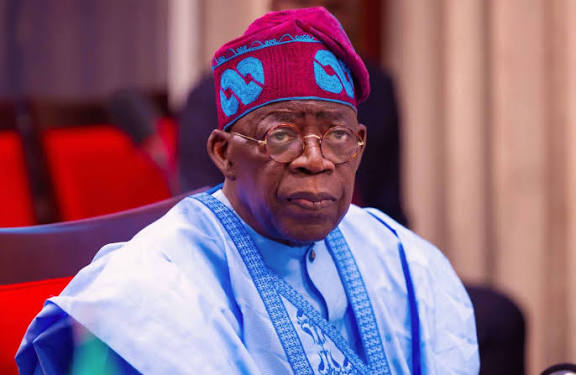
16 Nigerian Military Officers Arrested Over Alleged Coup Plot to Oust President Tinubu

A deep wave of tension is sweeping through Nigeria’s security circles following the arrest of sixteen senior military officers over what intelligence sources describe as a “coordinated coup attempt” aimed at toppling President Bola Ahmed Tinubu’s government.
The arrests, confirmed late Sunday by top defence insiders, have thrown the Armed Forces into secrecy and suspicion, reviving old fears of political instability in Africa’s most populous nation.
Though the Defence Headquarters tried to downplay the situation, describing the detentions as part of “routine disciplinary procedures” linked to promotion failures and breaches of service ethics, multiple high-ranking officials told Busterblog.com that the explanation was a smokescreen. According to credible intelligence sources, the real reason behind the arrests was an alleged plan to overthrow the President and “restore national order from corrupt politicians.”
The Director of Defence Information, Brigadier General Tukur Gusau, confirmed the arrests in a brief statement, insisting they stemmed from internal disciplinary issues. “The Armed Forces maintain the highest standards of professionalism. The recent actions are routine exercises to ensure discipline and loyalty within the ranks,” he stated. But those familiar with the situation painted a darker picture — one involving encrypted communications, secret meetings, and growing discontent among officers who felt sidelined by what they described as “politicized leadership” in the military hierarchy.
Sources disclosed that the Defence Intelligence Agency (DIA) had been tracking suspicious movements and encrypted conversations among certain officers for weeks before the arrests. The alleged plot was said to be spearheaded by a Brigadier General who reportedly rallied loyalists across various formations under the pretext of “saving Nigeria from selfish governance.” The DIA, acting on high-level directives, moved swiftly in late September, arresting suspects in coordinated midnight operations across Abuja, Kaduna, and Jos.
The timing of the operation appears deliberate. According to two senior officers who spoke under anonymity, intelligence reports warned that the coup plotters intended to make their move during the October 1 Independence Day celebrations — a day when the President, service chiefs, and key government figures were expected to gather at Eagle Square. The Independence parade was abruptly cancelled days before the event, officially cited as a “security precaution,” but now security experts believe it was linked to fears of an imminent mutiny.
All sixteen officers are currently being held at the Defence Intelligence Agency’s underground facility in Abuja, where interrogations are ongoing. The suspects reportedly include two Lieutenant Colonels, three Majors, and several Captains, alongside the alleged ringleader, a Brigadier General from the Nigerian Army’s North Central Command.
While the government has not officially confirmed the coup narrative, internal memos seen by Busterblog.com suggest that President Tinubu was briefed on a “serious internal security threat” involving “anti-democratic elements” within the Armed Forces. The presidency has so far maintained silence, with a senior aide describing the issue as “a purely military matter being professionally managed.”
The development has reignited fears of internal cracks within Nigeria’s military — a force that has long prided itself on professionalism since the country’s return to democracy in 1999. Yet frustration is reportedly growing among middle-ranking officers over corruption, stalled promotions, and poor welfare, issues that have worsened amid rising insecurity and economic hardship. Some officers reportedly complained that while they risk their lives in conflict zones, top generals live lavishly in Abuja and abroad.
Nigeria has a bloody history of coups, having witnessed five successful takeovers since independence in 1960 — the most notable being the 1966, 1975, 1983, 1985, and 1993 overthrows. While the last military regime officially ended over two decades ago, the country’s political system remains haunted by the shadow of uniformed power and the lingering belief that force, not ballots, often decides leadership in Africa.
Security analysts warn that the recent arrests reflect not only political paranoia but also deep-seated dissatisfaction festering within the armed ranks. “This is not just about sixteen officers — it’s about morale,” said a retired colonel now working as a defence consultant. “When soldiers start whispering about betrayal and corruption, the institution itself is in danger.”
As the investigation continues, human rights groups are already raising concerns about due process and possible torture of the detained officers. The Defence Headquarters has refused to release their names, citing ongoing interrogations and national security considerations.
For now, Abuja remains on alert. Military checkpoints around key federal institutions have reportedly increased, with plainclothes operatives monitoring movement near major barracks and government offices. The silence from Aso Rock only deepens speculation about the scope of the plot and how close it may have come to reality.
In a country still struggling with insecurity, economic turmoil, and political distrust, whispers of a coup — even if thwarted — are enough to send shockwaves through an already anxious nation. Whether this was a genuine mutiny or a preemptive purge by a jittery government, one thing is clear: Nigeria’s democracy just brushed dangerously close to its oldest ghost.

